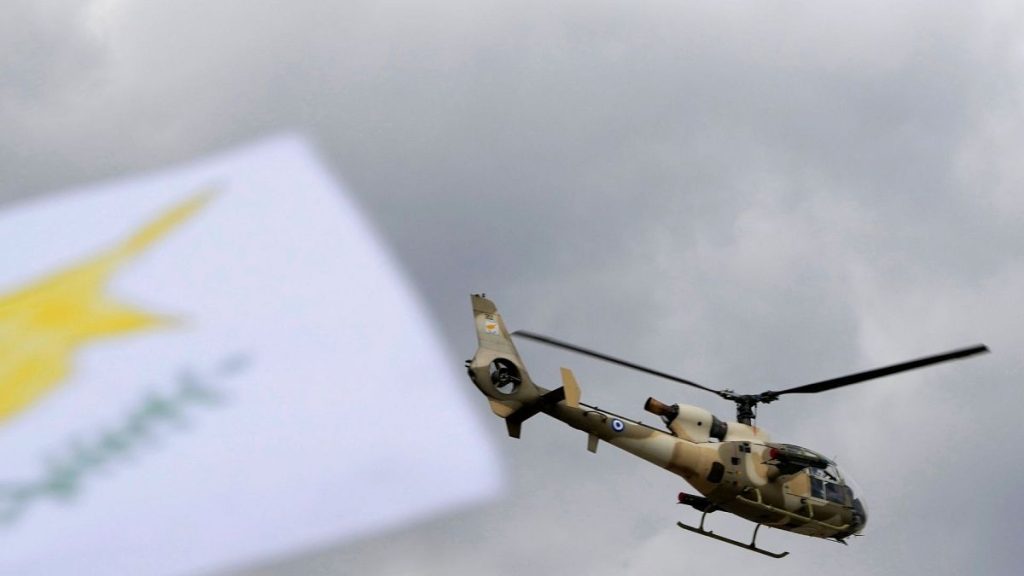Cypriot President Nikos Christodoulides has recently indicated a significant policy shift regarding Cyprus’ longstanding commitment to neutrality, particularly in the context of NATO membership. During a press conference held on Thursday, he conveyed that Cyprus might pursue membership in NATO, contingent upon the enhancement of its armed forces with necessary training and equipment, primarily supported by the United States. This strategic pivot follows Christodoulides’ meeting with U.S. President Joe Biden in Washington, proposing a strong alignment with Western defense mechanisms and signaling a departure from a neutral stance that the island maintained since the Cold War era. Notably, he acknowledged the current impossibility of joining the military alliance due to Turkey’s potential objections, reflecting the complex geopolitical realities surrounding Cyprus.
Turkey’s role in this context is critical, particularly since it does not recognize the Republic of Cyprus, which is governed from the Greek Cypriot-controlled southern part of the island. Moreover, Turkey maintains a military presence of approximately 35,000 troops in the northern area, which it occupies following the 1974 invasion that followed a failed coup aimed at uniting Cyprus with Greece. While the prospect of NATO membership is attractive, Christodoulides did not outline specific strategies for overcoming Turkish objections to such a membership, although he alluded to ongoing UN-led initiatives to foster dialogue between the Greek and Turkish Cypriot communities. The long-standing division of Cyprus remains a considerable barrier to any form of regional cooperation or security arrangement that involves NATO.
Cyprus’ strategic geographic position, being the closest EU member state to the Middle East, further complicates its security environment. It lies just 182 kilometers from Beirut, Lebanon, which underscores the island’s potential role as a military and logistical hub in the region. Given this location, Christodoulides emphasized the necessity for upgrading Cyprus’ military infrastructure. Specific discussions are already in progress concerning the modernization of the Andreas Papandreou air base, which is currently utilized by U.S. Marines and is equipped to facilitate evacuations from locations such as Lebanon. These military upgrades are intended not only to enhance Cyprus’ defense capabilities but also to solidify its role within broader U.S. strategic interests in the Eastern Mediterranean.
In tandem with cooperation with the United States, President Christodoulides highlighted the importance of working alongside the European Union to establish a robust defense framework for Cyprus. Efforts aimed at updating naval facilities are also on the table, as improving deterrent capabilities is deemed critical for the island nation. “The strengthening of the Cyprus Republic’s deterrent capabilities is of the utmost importance,” he reiterated, thereby conveying that Cyprus is eager to leverage all available opportunities from both the U.S. and NATO, as well as the EU. By fostering these collaborations, Cyprus seeks to elevate its status both regionally and within the EU by presenting itself as a proactive player in national and regional security matters.
The historical backdrop of Cyprus’ division adds additional layers of complexity to these discussions. The invasion by Turkey in 1974 marked a significant turning point that resulted in the partitioning of the island, which has been mired in political and social upheaval ever since. Christodoulides has pointed out that peace talks aimed at reconciling the Greek and Turkish Cypriot communities have been stagnant since 2017, posing challenges to not only potential NATO membership but also broader regional stability. Addressing these issues while pursuing military upgrades will be crucial for Christodoulides as he navigates the delicate balance of diplomacy and defense, particularly in light of Turkey’s continuing military presence on the island.
In conclusion, as Cyprus seeks to modernize its military and pivot towards American and NATO support, the challenges posed by Turkish objections and historical divisions cannot be overlooked. Christodoulides’ statements reflect a resolute commitment to enhancing Cyprus’ defense posture while fostering constructive relations with both the U.S. and the EU. The path to potential NATO membership is fraught with obstacles, particularly due to the island’s contentious background and ongoing geopolitical tensions. Nevertheless, Cyprus appears prepared to actively pursue the necessary upgrades and partnerships that will establish not only a stronger national defense but also a more influential position within European security frameworks. This strategic evolution will be closely monitored both regionally and internationally, as it has implications for the balance of power in the Eastern Mediterranean.














